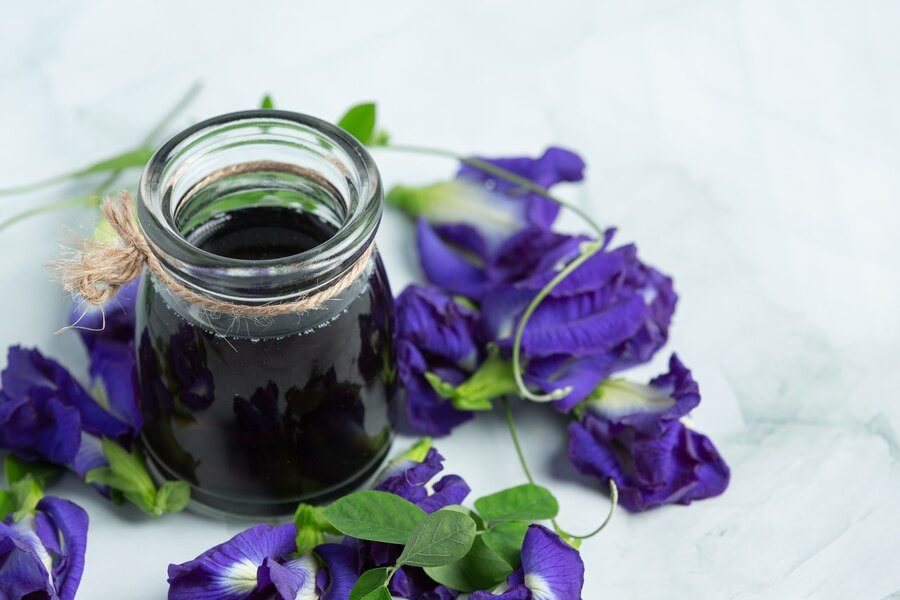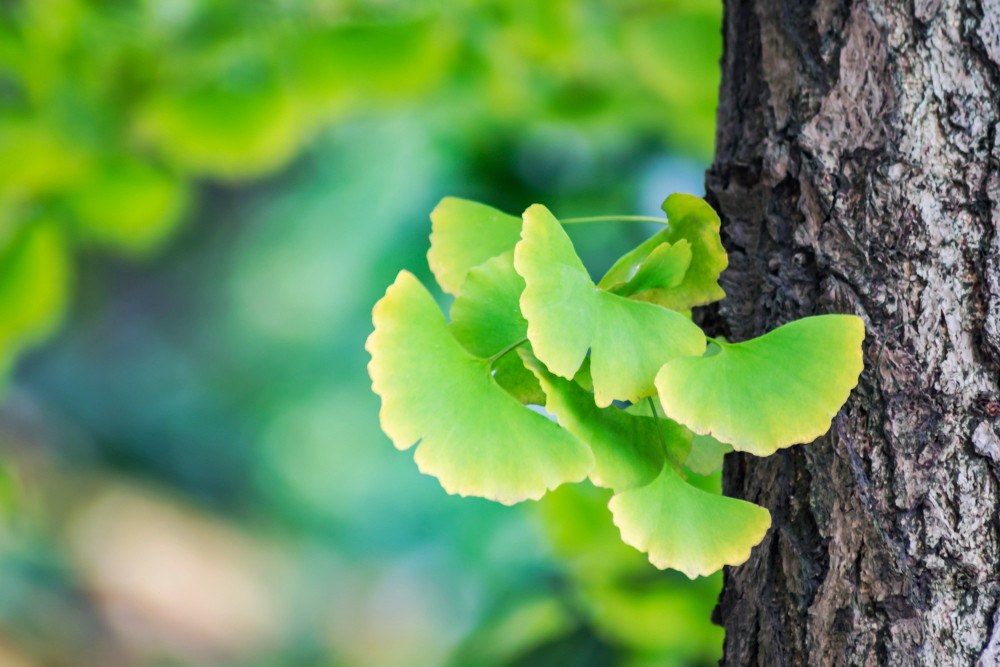Bunga telang atau dikenal dengan butterfly pea flower populer dikonsumsi sebagai teh herbal. Bunga ini memiliki warna biru yang indah dan khas yang berasal dari pigmen alaminya, antosianin.
Dikonsumsi sebagai teh herbal, bunga telang memiliki banyak manfaat bagi kesehatan. Apa saja manfaat tersebut?
Mengenal Bunga Telang
Bunga telang memiliki nama latin Clitoria ternatea. Ini adalah jenis tanaman dari keluarga polong-polongan. Bunga telang sangat mudah dikenali. Bunga ini memiliki bentuk yang unik dan warna biru yang mencolok. Bunga telang tumbuh secara merambat dan sering dijadikan tanaman hias.
Namun, kini bunga telang juga dipergunakan sebagai pewarna alami makanan dan dipercaya memiliki berbagai manfaat bagi kesehatan.
Manfaat Mengonsumsi Bunga Telang
Bunga telang telah digunakan dalam pengobatan tradisional di berbagai negara. Diseduh sebagai teh, bunga ini menyimpan banyak manfaat bagi kesehatan, di antaranya:
Kaya antioksidan
Bunga telang kaya akan kandungan antioksidan yang baik untuk tubuh. Antioksidan adalah senyawa yang membantu melawan radikal bebas yang dapat merusak sel-sel tubuh dan menyebabkan penuaan dini, serta berbagai penyakit kronis.
Senyawa utama dalam bunga telang yang memberi warna biru, antosianin juga dikenal sebagai antioksidan yang kuat. Ini dapat melindungi sel-sel tubuh dari kerusakan oksidatif.
Baca Juga: Hindari Mengonsumsi Pare Bila Memiliki Kondisi Berikut
Meningkatkan kesehatan otak
Khasiat lain dari bunga telang adalah kemampuannya dalam meningkatkan fungsi kognitif dan kesehatan otak. Beberapa penelitian menunjukkan bahwa ekstrak bunga telang dapat membantu meningkatkan daya ingat dan konsentrasi.
Ekstrak bunga telang dapat meningkatkan kadar asetilkolin, suatu senyawa kimia yang penting dalam proses belajar dan memori. Dalam pengobatan tradisional, teh bunga telang kerap digunakan untuk membantu mengatasi masalah memori seperti alzheimer dan demensia.
Mengurangi stres dan kecemasan
Teh bunga telang juga sering digunakan sebagai minuman relaksasi, yang khasiatnya dapat meredakan stres dan kecemasan. Kandungannya telah dipercaya memiliki efek menenangkan pada sistem saraf sehingga dapat membantu menurunkan tingkat kecemasan dan meningkatkan suasana hati.
Menjaga kesehatan kulit
Antosianin dalam bunga telang dipercaya mampu membantu memperbaiki elastisitas kulit serta melawan tanda-tanda penuaan seperti keriput dan bintik hitam. Selain itu, antioksidan dalam bunga telang dapat melindungi kulit dari efek buruk paparan sinar UV dan polusi.
Baca Juga: Teh Hijau Campur Lemon, Apa Khasiatnya?
Menyehatkan sistem pencernaan
Ekstrak bunga telang diketahui dapat membantu mengatasi masalah pencernaan seperti sembelit dan kembung. Efek antiinflamasi dan antioksidan ini dapat membantu mengurangi peradangan di saluran pencernaan sehingga pencernaan menjadi lebih lancar dan sehat.
Mengontrol gula darah
Penelitian menunjukkan bahwa bunga telang juga bermanfaat dalam mengontrol kadar gula darah. Bunga telang dapat membantu meningkatkan sensitivitas insulin yang berperan dalam mengatur kadar gula dalam darah.
Sebagai bunga yang kaya antioksidan, bunga telang juga membantu mencegah komplikasi yang sering terjadi akibat diabetes seperti kerusakan pembuluh darah dan saraf.
Perlu diingat bahwa bunga telang bukanlah obat herbal untuk diabetes. Dalam mengelola diabetes dibutuhkan pengobatan dan perawatan yang tepat. Jangan ragu berkonsultasi dengan dokter untuk mendapatkan saran pengelolaan diabetes yang tepat.
Manfaatkan juga layanan konsultasi kesehatan bersama dokter pada aplikasi Ai Care dengan mengunduhnya melalui App Store atau Play Store.
Mau tahu informasi seputar nutrisi, makanan dan tips diet lainnya? Cek di sini, ya!
- dr Nadia Opmalina
Rachaela Ajmera, MS, RD (2021). What Is Butterfly Pea Flower, and Does It Aid Weight Loss?. Available from: https://www.healthline.com/nutrition/butterfly-pea-flower-benefits
Ariane Lang, BSc, MBA (2022). Blue Tea: Benefits, Side Effects, and How To Make It. Available from: https://www.healthline.com/nutrition/blue-tea
Dr. Jasmine Shaikh, MD. 8 Health Benefits of Blue Clitoria Ternatea. Available from: https://www.medicinenet.com/8_health_benefits_of_blue_clitoria_ternate/article.htm
Harvard Medical School (2021). The health benefits of 3 herbal teas. Available from: https://www.health.harvard.edu/nutrition/the-health-benefits-of-3-herbal-teas












